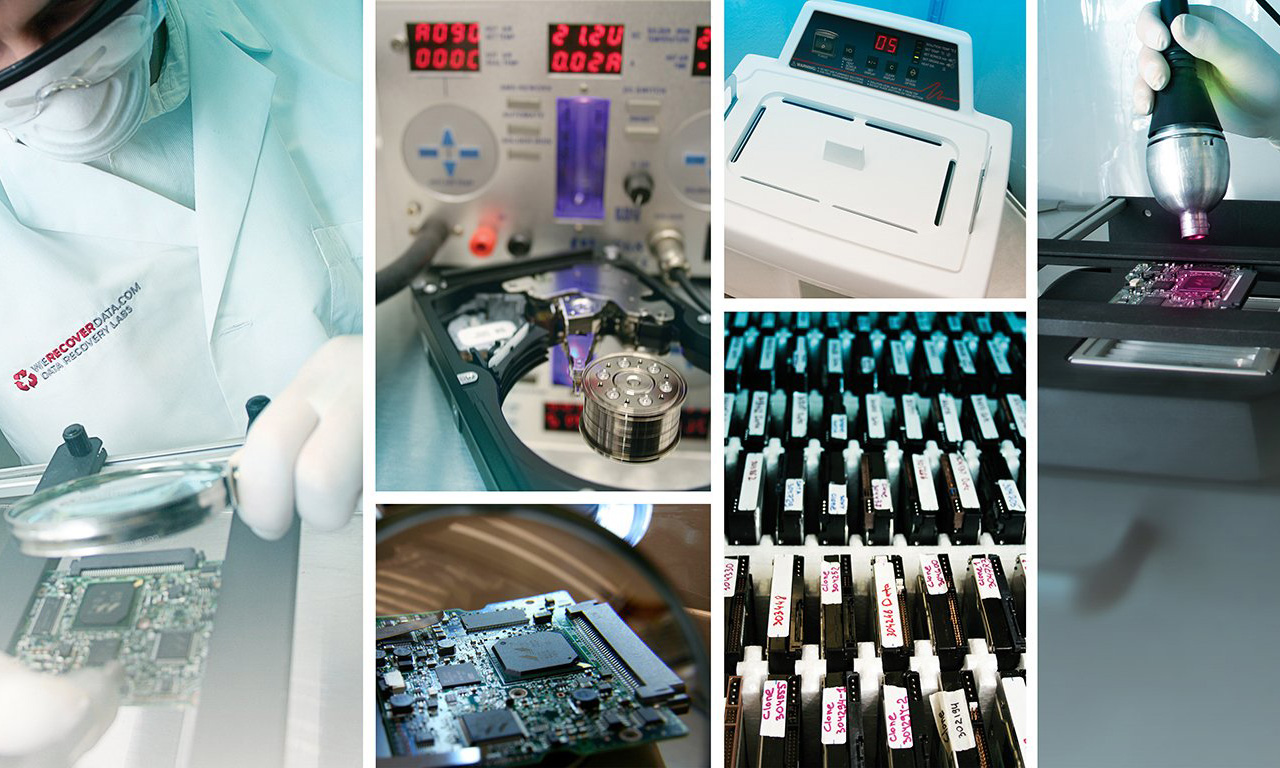Technology’s Positive Impact on Climate Change
By Matt Brennan
Data and technology are everywhere. As we collect more information and more data sets, some of the technology that we create is having a significantly positive impact on the environment and climate change.
Below are some of the technologies that are allowing humans to make a positive dent on this issue. As we discover new opportunities to implement technology, there are more opportunities at our fingertips for change. In the midst of this heavy reliance on information, data recovery can play an important role in this key issue.
Technology Is Positively Impacting Climate Change
Data Storage That’s Out of This World
Data centers scattered across the US make up about 2 percent of our national electricity consumption. That’s an amount that significantly contributes to rising carbon emissions. These data centers spew 100 million metric tons of carbon pollution annually, which is more than the greenhouse gas emissions of 140 countries.
To thwart this problem, there are companies looking to store data on satellites that orbit the earth. These satellites could simplify large-scale international operations, and offer an added layer of security, with data stored on a satellite. When these satellites break down, they’ll not only need highly trained mechanics to fix the issues, but data recovery specialists who can help properly restore the integrity of the equipment.
Smarter Cities
Urban greenhouse gas emissions are significant. Businesses, homes, schools, and hospitals all give off a significant amount of emissions. In fact, these sources are responsible for almost 20 percent of the greenhouse gases released into the atmosphere.
A company called Sidewalk Labs, owned by Google’s parent company, Alphabet, is addressing this issue, by examining ways that digital technologies can help with these problems. They’re reexamining things like traffic patterns to eliminate places of common congestion. Other major tech companies around the world have also committed significant investments in how to reduce emissions in urban areas as well.
More Efficient Transportation
Oil alternatives are already on the market, including electric, solar, and ethanol. But part of the hang up with this type of technology is that it’s just not as efficient and widespread as traditional gasoline. For instance, if you need to charge your electric vehicle, it can take hours, instead of the moments spent at the gas station.
A prototype charger for BMW and Porsche vehicles is capable of adding 62 miles of range to your vehicle in three minutes. It may be a while before this type of charger is commonplace, but when it is, electric vehicle ownership will become more convenient.
Food and Agriculture
As the world’s population continues to increase, finding enough sources of meat will become an increasingly difficult challenge. This is especially true because cows are a significant source of methane gas, and agriculture accounts for 18 percent of the total release of greenhouse gases worldwide.
There are companies and investors looking heavily into the possibility of lab-grown meat, and plant-based alternatives. The company Beyond produces a plant-based alternative that is growing in popularity. As the world becomes more and more crowded, technology is finding more efficient ways to feed the increasing population.
Technology as Part of the Solution
As the problem of climate change continues to present itself in different ways, technology and data collection provide new answers. There are companies working hard to solve tomorrow’s most pressing issues. As this data-driven technology advances, there will be new and exciting opportunities for data recovery as well.






















Great company!
I think it is the best company in the world regarding data recovery. They take all types of recovery cases with great responsibility and ensure they work with the best possible solution for your specific case. I highly recommend it.
Superb effort
Superb effort from werecoverdata. I had no idea how to fix it when I faced a horrible problem with my RAID NAS. But they solved it very quickly and superbly. I recommend them!
Fantastic results
Thanks to all staff of werecoverdata for excellent work and for getting my company data back! I got frustrated when a deadly drop damaged my hard drive. But they solved it!
Thanks
Few days ago my raid server is crashed dangerously. It was not starting any more. I tried in a various way whatever I know but I could not fix it. My uncle told me about WeRecoverdata. Then contact with them and they repaired it. Thank you guys.
Recover service
Those are suffering bad experience of getting a reliable and professional recovery service provider, definitely, they can choose werecoverdata. I highly recommend it.
Thanks a lot
The location is a bit hard to find out but eventually, I did. They recovered my hard drive, which was mostly dead. Thanks a lot.
Great response
Definitely weRecover team is great to solve that kind of hard drive problem. Great response and remarkable. They recovered my all data successfully within short time. I wanna give special thank to David. Thanks a lot man.
Liked Your Service
I have been using my HP laptop since 2016. Few months ago I could not open my laptop. After pressing the power button its showing nothing. My friend told me about that company. They recovered my laptop. Now its working perfectly. Thanks a lot WeRecoverData.
Pretty good experience
It was really pretty good experience. They are so professional, punctual and reliable. I strongly recommend it.
Remarkable Work
A lot of thanks to werecoverdata. You did really remarkable work. I was frustrated when lost my important data from a hard drive. I sent my hard drive to WRD then they got all the data back. At first, I couldn’t believe anyone can recover it since my computer tech said he can’t do it. All credit goes to werecoverdata.
Gorgeous service
Fantastic service from all the guys at werecoverdata. I was having pressure when corrupted data from my hard drive .Then I went there and they fixed it superbly.Thanks for removing the pressure!
Extremely well
I faced horrible problem but they solved it extremely well.My problem was that hard drive crashed dangerously.At this moment I thought the sky was broken on my head.Thank you for that.
Sensible
Thanks to WeRecoverData. You fixed the hard drive problem promptly. I am impressed… Anybody can rely on werecoverdata.
Well done
Thank you
Great work
Obviously great work from werecoverdata.Definitely no doubt about this company because they take seriously to solve any kinds of problem.I have lot of assurance at them.A lot of thanks to them.
Fantastic work
Oh Tom really fantastic work. You saved my important days. Raid 5 server damaged dangerously few days ago. But you fixed it well. Thank you for that!
Great efforts
All credits goes to werecoverdata for recovering raid server.I thought impossible to repair it but they was taken sensible and fixed it.Now I can fully trust on werecoverdata.All thanks to them.
Helpful Work
Werecoverdata, you did a really very helpful work.I was angry when my hard drive got dropped from my mistakes. I recommend the company and give a lot of thanks to werecoverdata.
Best service
After my hard drive crashed I was going to be totally mad. One of mu cousin suggested me to meet that company. I did and got the best service ever I had.
Remarkable Job
AWESOME service from WeRecoverData. I was almost mad when my pc crashed. A lot of valuable data in my hard drive. One of my friend recommend it. I thought it will not be possible.
But after all I got back my all data. Thank You WeRecoverData.